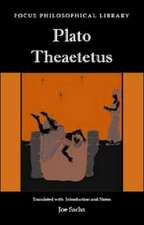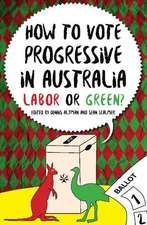Statesman
Autor Plato Traducere de Benjamin Jowetten Limba Engleză Paperback
| Toate formatele și edițiile | Preț | Express |
|---|---|---|
| Paperback (12) | 46.18 lei 3-5 săpt. | |
| – | 46.18 lei 3-5 săpt. | |
| CREATESPACE – | 47.00 lei 3-5 săpt. | |
| – | 57.75 lei 3-5 săpt. | |
| CreateSpace Independent Publishing Platform – | 74.93 lei 3-5 săpt. | |
| Hackett Publishing Company – 15 mar 1999 | 79.07 lei 3-5 săpt. | +12.79 lei 6-12 zile |
| Hackett Publishing Company, In – 14 oct 1992 | 92.48 lei 3-5 săpt. | |
| Hackett Publishing Company – 15 mar 2012 | 94.03 lei 3-5 săpt. | |
| ALPHA EDITION – 27 aug 2024 | 100.12 lei 3-5 săpt. | |
| Echo Library – 3 oct 2006 | 69.94 lei 39-44 zile | |
| 1st World Library – | 79.19 lei 6-8 săpt. | |
| Akasha Classics – 11 noi 2009 | 99.33 lei 6-8 săpt. | |
| TREDITION CLASSICS – 31 oct 2011 | 145.52 lei 6-8 săpt. | |
| Hardback (4) | 173.34 lei 6-8 săpt. | |
| Hackett Publishing Company – 15 mar 1999 | 209.03 lei 3-5 săpt. | |
| Hackett Publishing Company – 15 oct 1992 | 210.42 lei 3-5 săpt. | |
| 1st World Library – | 173.34 lei 6-8 săpt. | |
| Akasha Classics – 11 noi 2009 | 195.85 lei 6-8 săpt. |
Preț: 47.00 lei
Nou
Puncte Express: 71
Preț estimativ în valută:
8.99€ • 9.80$ • 7.58£
8.99€ • 9.80$ • 7.58£
Carte disponibilă
Livrare economică 03-17 aprilie
Preluare comenzi: 021 569.72.76
Specificații
ISBN-13: 9781517190644
ISBN-10: 1517190649
Pagini: 84
Dimensiuni: 152 x 229 x 4 mm
Greutate: 0.12 kg
Editura: CREATESPACE
ISBN-10: 1517190649
Pagini: 84
Dimensiuni: 152 x 229 x 4 mm
Greutate: 0.12 kg
Editura: CREATESPACE
Recenzii
"This will be the preferred edition of Plato's Statesman for teachers and students who are serious not only about reading the text in good translation, but also about working through its arguments." -- Austin Gish, College of the Holy Cross
"Having taught Plato's dialogues in my classes over the past forty-three years to upper level undergraduates, I can especially appreciate the value of this new edition of Plato's Statesman. The three translators have paid very close attention to the amazing fecund versatility of the Greek text, producing a translation that is as accurate and lively as possible and the best currently available for classroom use. The interpretative essay is unique in its highlighting of all of the issues that a thoughtful reader should be led to consider concerning this work. As has been the case with other works by these translators, the glossary leads any Greek-less reader as close as possible to the interconnections of the major words that sustain the flow and eddies of this perennially fascinating work." -- Donald Lindenmuth, Pennsylvania State University
"All serious students of Plato will want to obtain this book. Brann, Kalkavage, and Salem have provided all the tools one needs--short of a knowledge of ancient Greek -- to undertake in-depth study of this enormously important, complex, and fascinating dialogue." -- Jacob Howland, University of Tulsa
"Having taught Plato's dialogues in my classes over the past forty-three years to upper level undergraduates, I can especially appreciate the value of this new edition of Plato's Statesman. The three translators have paid very close attention to the amazing fecund versatility of the Greek text, producing a translation that is as accurate and lively as possible and the best currently available for classroom use. The interpretative essay is unique in its highlighting of all of the issues that a thoughtful reader should be led to consider concerning this work. As has been the case with other works by these translators, the glossary leads any Greek-less reader as close as possible to the interconnections of the major words that sustain the flow and eddies of this perennially fascinating work." -- Donald Lindenmuth, Pennsylvania State University
"All serious students of Plato will want to obtain this book. Brann, Kalkavage, and Salem have provided all the tools one needs--short of a knowledge of ancient Greek -- to undertake in-depth study of this enormously important, complex, and fascinating dialogue." -- Jacob Howland, University of Tulsa
Notă biografică
Plato was an ancient Greek philosopher born in Athens during the Classical period in Ancient Greece. In Athens, Plato founded the Academy, a philosophical school where he taught the philosophical doctrines that would later become known as Platonism. Plato (or Platon) was a pen name derived, apparently, from the nickname given to him by his wrestling coach - allegedly a reference to his physical broadness. According to Alexander of Miletus quoted by Diogenes of Sinope his actual name was Aristocles, son of Ariston, of the deme Collytus (Collytus being a district of Athens).Plato was an innovator of the written dialogue and dialectic forms in philosophy. He raised problems for what later became all the major areas of both theoretical philosophy and practical philosophy. His most famous contribution is the Theory of forms, which has been interpreted as advancing a solution to what is now known as the problem of universals. He is also the namesake of Platonic love and the Platonic solids.His own most decisive philosophical influences are usually thought to have been, along with Socrates, the pre-Socratics Pythagoras, Heraclitus, and Parmenides, although few of his predecessors' works remain extant and much of what we know about these figures today derives from Plato himself.[a]Along with his teacher, Socrates, and his student, Aristotle, Plato is a central figure in the history of philosophy.[b] Unlike the work of nearly all of his contemporaries, Plato's entire body of work is believed to have survived intact for over 2,400 years.[6] Although their popularity has fluctuated, Plato's works have consistently been read and studied. Through Neoplatonism Plato also greatly influenced both Christian and Islamic philosophy (through e.g. Al-Farabi). In modern times, Alfred North Whitehead famously said: "the safest general characterization of the European philosophical tradition is that it consists of a series of footnotes to Plato.














